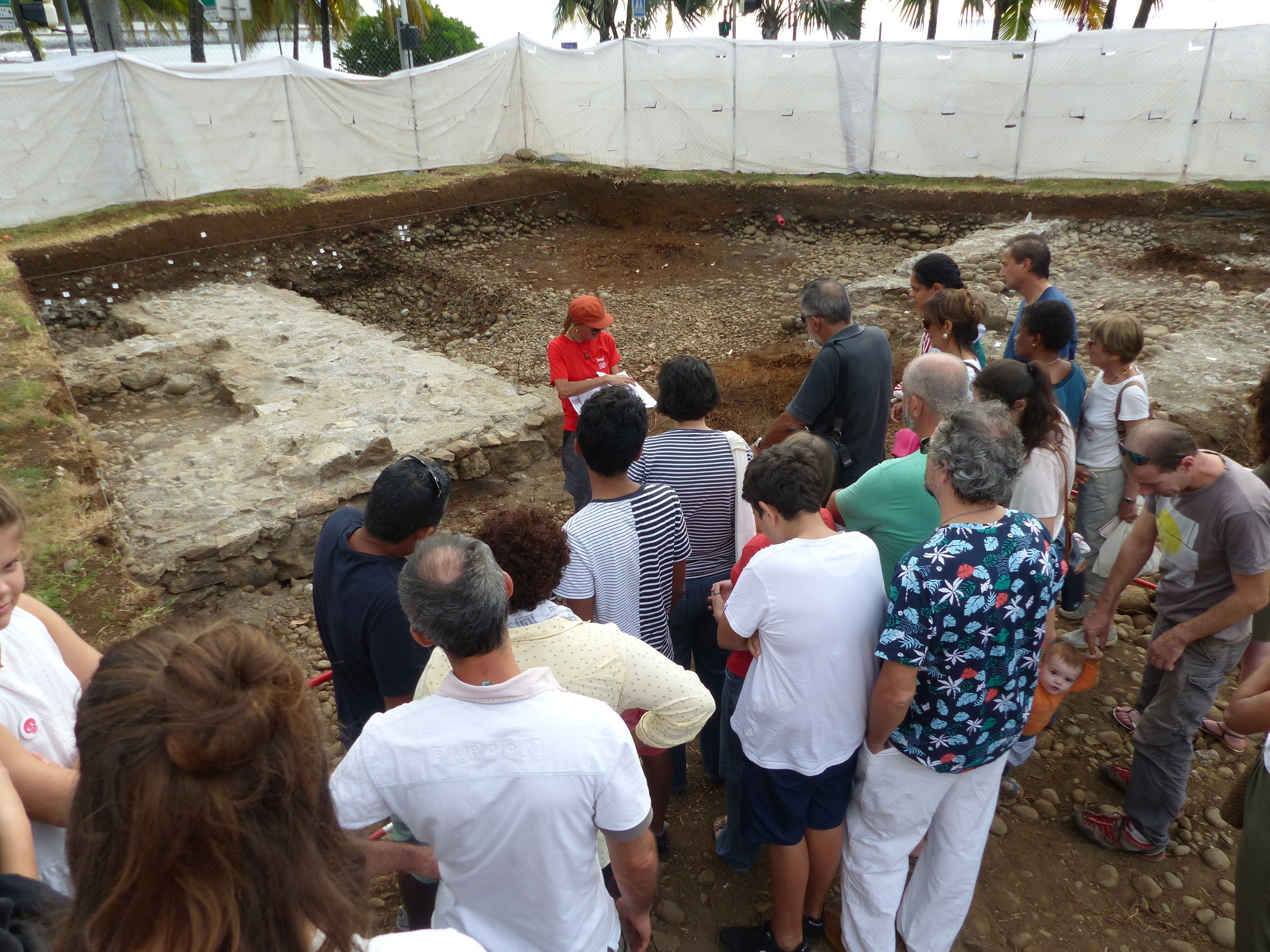
- Home
- Archaeology on Reunion Island
- Missions and methods
- Presentation and promotion
The development of archaeology in our overseas département is underpinned by a dynamic and ambitious presentation and promotion policy. Archaeology now forms part of the artistic and cultural education of school children, in partnership with the local education office. It is also used to raise awareness among a wider public, including during national and European events such as the European Archaeology Days or Heritage Days.
One of the aims of archaeologists is to use their latest discoveries in the field to help communities learn more about past societies. This is why the presentation and promotion of archaeological finds is an important part of the work of the Réunion regional archaeology department. There are different ways of presenting and promoting these finds to a broad audience, including people who are interested in learning more about the history of the region and archaeological practices and the research methods used by archaeologists.
Many actions and resources are also targeted at younger audiences in schools, including classroom visits by archaeologists, the availability of learning packages and a media and scientific information education project based around the creation of a web doc.
To reach an even wider audience, in addition to open days organised during excavations, the SRA has drawn up a “Southern Archaeology" style guide to help highlight interesting initiatives. The collection includes more than forty canvas sheets for large-scale exhibitions. Around a dozen documentaries have also been made to help everyone experience the world of archaeology.
Lastly, results are published for the attention of the archaeological community as part of a dynamic approach that includes the publication of an annual article summarising the work done over the past year in the report of the Académie de l’île de La Réunion, and the regular publication of regional scientific reports with notices available online at ADLFI. Archaeologists also attend conferences and regularly publish in scientific publications.
These resources are available on request and are particularly in evidence in mid-June during the annual European Archaeology Days, which draw a larger audience of islanders every year.









